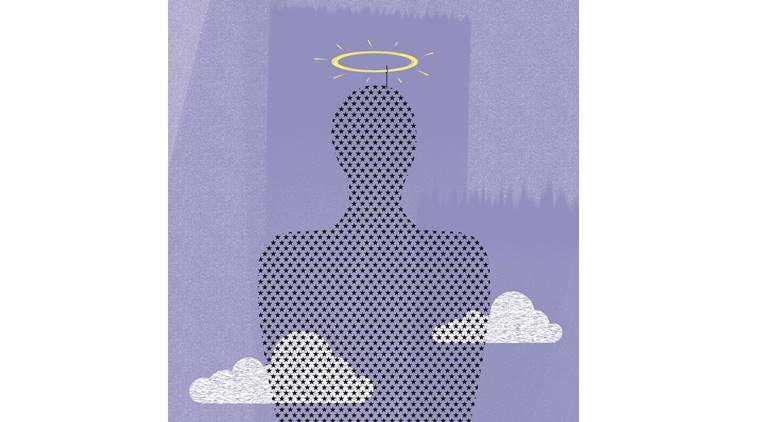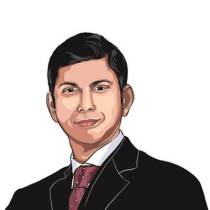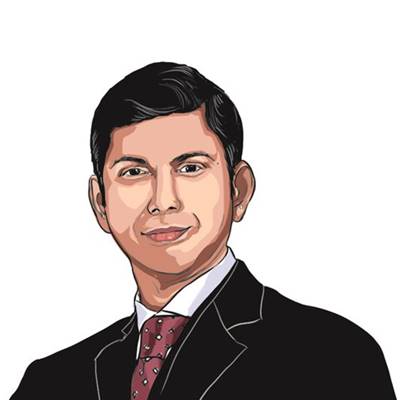By their deeds shall they be known
We don’t speak ill of the dead. But often, to ignore their acts of omission and commission is to do disservice to those who suffered because of their actions

Illustration by C R Sasikumar
The Latin phrase, de mortuis nihil nisi bonum, (of the dead, say nothing but good), dates back to the 4th century. A Greek aphorism with a similar meaning can even be traced to as far back as 600 BC. Over hundreds of years, this has been an accepted tenet of human decorum and decency. To speak only well of the departed — a tradition fully endorsed in our own land, where even sworn enemies shower praise at memorials. Perhaps it is in the hope that they themselves will be accorded the same courtesy on passing, however questionable their conduct may have been in life. It is one of many small foibles that we delude ourselves with, as was on show in abundance last fortnight following the demise of many high-profile citizens of the world. The two which exemplified it were those with an Indian connection — Atal Bihari Vajpayee and V S Naipaul.
Everyone, regardless of political or philosophical dispensation, rushed to heap praise on the former prime minister. And there was much to praise. His contribution on the economic front, from road building to privatisation to telecom policy, cannot be overlooked.
Yet, he was also the prime minister in 2002, when India faced arguably its worst social moment in recent history. And what did he do? He offered poetic guidance to the chief minister of Gujarat, asking him to do raj dharma. Had he acted more decisively on that day, maybe India wouldn’t be the riven nation it is today. Later, perhaps stricken by the 2004 election verdict, he admitted that “maybe he had made a mistake”.
The regret was presumably at him having not had the courage to dismiss the Gujarat Chief Minister but it may also have been at his monumental blunder of calling for early elections, following a famously backfiring “India shining” campaign. Anyway, it was too little, too late. After his demise, many have claimed that he was a moderate, not a hardliner like L K Advani. Yet, his words on the eve of the Babri Masjid demolition, alluding to a desired “levelling of the ground” where the mosque stood, are recorded on camera for all to see. Again, that recourse to oratory and poetry, when the action, or inaction, sprang from questionable ideals. Obituaries may cling to a man’s words, history often dwells on his actions. One is forgotten, the other endures.
Kofi Annan, the former UN secretary general, received great accolades too, on his passing last week. His moral uprightness untarnished by his son’s alleged involvement in the “oil for food” scandal in Iraq, his exemplary stewardship of the UN unsullied by the heinous genocide in Rwanda or massacre in Bosnia, which he presided over with bumbling incompetence. History may be less charitable.
At least Sir Vidia got his share of brickbats, perhaps because his obituaries came from more learned people; men of letters, not politicians. He was one of the century’s greatest writers, but an Islamophobe and misogynist who tyrannised the women whose lives he touched and lashed out at Muslims. Some ill was spoken, deservedly, about this dead. Though it was still mostly high praise, even from his virulent lifelong critic Salman Rushdie, who said he had lost a brother in Naipaul. Touching.
One particular pathetic aspect of this is how journalists remember dead celebrities. More often than not, these are first person accounts of how well someone knew a particular politician or famous person — the time he came over for dinner or consulted one on a matter of national importance. No objectivity at all, just that naked desire to somehow bolster one’s own relevance through gratuitous suggestions of proximity to the inner coterie, in denial of the truth that they would always be aspiring outsiders in the eyes of the real protagonists.
In India, this trait of praising the dead is a bit ironic, seeing how little we care about the living or even the death of ordinary citizens. A hundred children die because of gross negligence in a Gorakhpur hospital and life carries on as is, after a few outraged cries in the media. Most Indians have developed this thick skin that enables them to confront and ignore the greatest of human tragedies with a mere clicking of the tongue. Perhaps it is the only way we can survive, in this nation of unending tragedies and atrocities.
Equally, public discourse in this country is marked by an utter lack of dignity, forget decorum, with powerful people calling each other by the vilest names possible. But when someone famous dies, they are all out in their verbal finery, outdoing each other in commending the dead. None of this should come as a surprise, though, knowing how intrinsic hypocrisy and duplicity are to our social fabric. Sigmund Freud had a remarkably perceptive take on this: “This consideration for the dead, which he really no longer needs, is more important to us than the truth; more important than consideration for the living.” So true.
We must end this obfuscation because often, in adorning a dead man’s legacy with unqualified praise we end up doing a great disservice to innocent people who may have suffered because of his sins, of commission or omission. An orphaned Rwandan child, a family destroyed in the Gujarat riots. They need closure, if only of the certainty that history will not forget, or absolve. Mark Antony’s words in Julius Caesar, should reassure them: The evil that men do lives after them; The good is oft interred with their bones.
Mukherjee’s first novel, ‘Dark Circles’, will be published by Bloomsbury India in November 2018
For all the latest Opinion News, download Indian Express App
More From Udayan Mukherjee
- The lurking bearIndia is not in a bear market yet. But the risks are high enough for investors to turn vigilant...
- Sell the family silverTime is running out for the public sector. As technologies change and the world advances further into the digital era, many PSUs will become more…
- The loudmouths at the topNew age leaders are undermining global stability by escalating confrontational economic and military positions...








































No hay comentarios:
Publicar un comentario